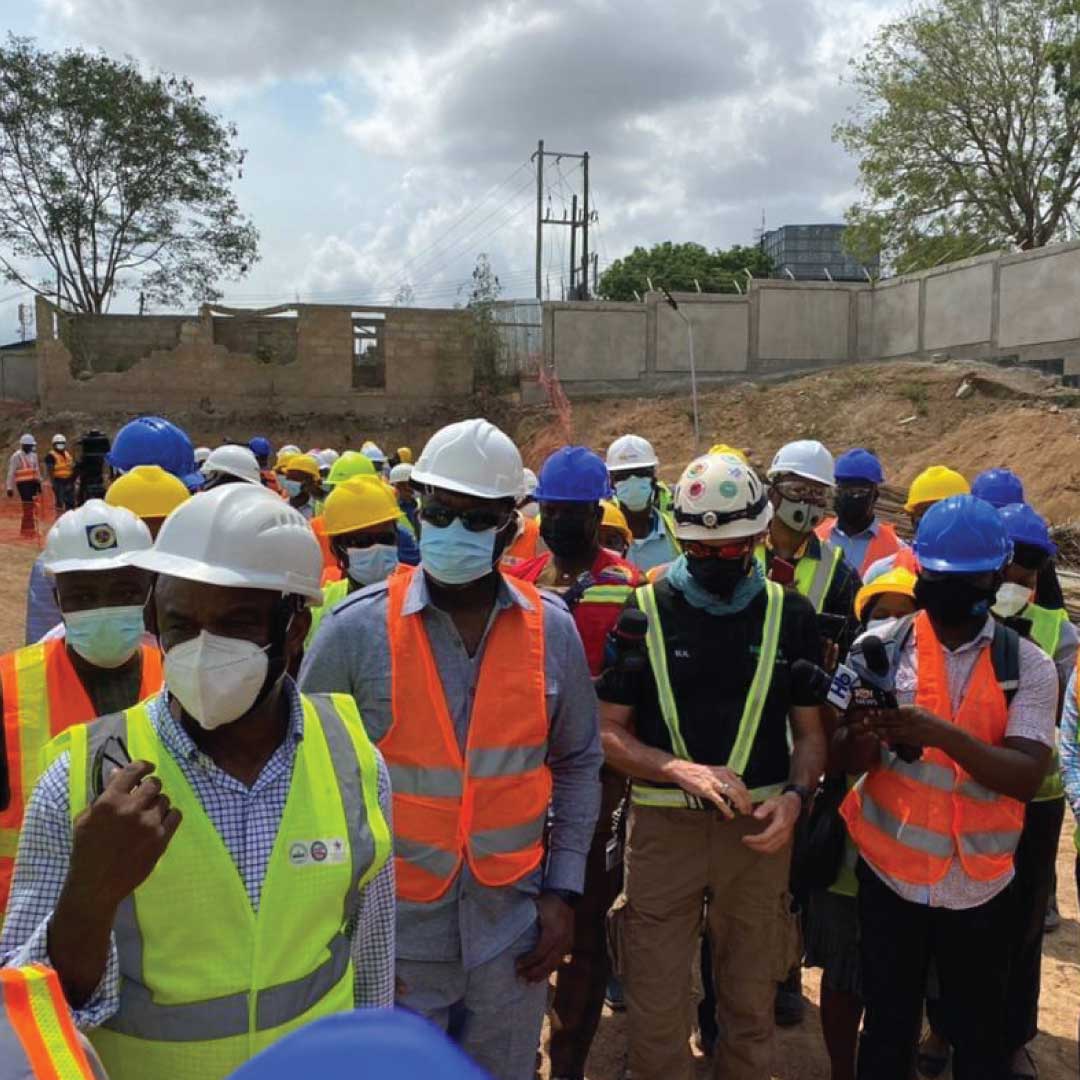The United States has concluded its nearly six-year $316 million investment in Ghana’s energy infrastructure with the opening of the Kasoa Bulk Supply Point (BSP) today, providing more stable power to hundreds of thousands of schools, hospitals, offices, and residences.
Today, the US Embassy’s Deputy Chief of Mission Nicole Chulick joined Ghana’s Vice President, H.E. Dr Mahamudu Bawumia, and other government officials to formally inaugurate the Kasoa Bulk Supply Point (BSP).
More About The Kasoa Bulk Supply Point Project
The $50 million power substation was funded by the US government as part of the MCC-Ghana Power Compact.
“Today, we celebrate the complete completion of the MCC Ghana Power Compact with the inauguration of the Kasoa Bulk Supply Point.” During the inauguration, Chulick stated, “This was a nearly six-year, $316 million commitment by the American people to develop Ghana’s energy infrastructure and support long-term economic prosperity.”
Chulick and Bawumia had a tour of the new facility after the celebration. The Kasoa BSP will assist stabilize voltages, eliminate power outages, and increase the quality and reliability of power delivered to the Awutu Senya East Municipality in Ghana’s Central Region.
Read Also : assistALL Mobile App to Assist the Deaf
The has grown to become Ghana’s second-largest capacity BSP. The gas-insulated power substation with a capacity of 435 megavolt ampere (MVA) will service 250,000 ECG users. It would also reduce technical losses in the power transmission and distribution system, enhancing the long-term financial viability of the Ghana Grid Company (GRIDCo) and the Electricity Company of Ghana (ECG).
The MCC Ghana Power Compact spent $316 million on new power infrastructure and reforms to give Ghanaians more reliable and inexpensive electricity.
It also backed initiatives aimed at increasing energy efficiency and expanding possibilities for women in the power industry. The relationship was implemented by Ghana’s Millennium Development Authority (MiDA) in collaboration with the Ghanaian government.
Infrastructure Improvements in the Energy Sector
The Pokuase BSP, the Kasoa BSP, the University of Ghana Medical Center Primary Substation in Legon, and the Ellen Moran Primary Substation at Kanda were all built as part of the MCC Ghana Power Compact, which successfully upgraded the country’s power sector.
The 37 Military Hospital, Greater Accra Regional Hospital, University of Ghana Medical Center, Noguchi Memorial Institute for Medical Research, the National Mosque, and over 800,000 utility customers are all served directly by these new electricity substations. Compact initiatives improved the electrical system in ten Accra and Tamale marketplaces.
To modernize the utility and help reduce commercial losses, ECG has built two new information technology systems: the Geographic Information System (GIS) and the Multimeter Management System (MMS).
Encouragement of Energy Efficiency
The MCC Ghana Power Compact also established the Ghana Standards Authority’s Air Conditioner and Refrigerator Test Laboratory. The laboratory, which is the first of its sort in West Africa, will assist in enforcing regulations to prevent the importation of inefficient equipment that wastes energy.
Twenty regulations for energy efficiency standards and labeling have been modified as part of the compact and are awaiting parliamentary approval.
More than 14,000 new energy-efficient streetlights with metered management systems were installed as part of the compact, replacing old, inefficient lighting and setting a new norm for energy savings.
Finally, the compact aided in the development of a curriculum for energy efficiency education in schools. As a result of the Compact, Ghana will develop energy auditing centers in collaboration with three major technical colleges, bolstering Ghana’s status as a West African leader in energy efficiency.
Its Inclusion
More than 600 female students in the domains of science, technology, engineering, and math (STEM) participated in mentoring and training as part of the MCC Ghana Power Compact for professional growth and development.
Three hundred of these students were offered internships at top energy companies. These internships have been critical in assisting firms in embracing a more inclusive workforce and sustaining efforts to create more opportunities for women to excel in traditionally male-dominated fields in the power sector.
Since then, the Electricity Company of Ghana (ECG) has created a gender policy, action plan, and new goals for female employee recruitment and advancement. ECG will also cooperate with USAID’s Engendering Utilities Program to maintain efforts toward a more diverse and inclusive energy workforce.
The Kasoa BSP’s inauguration symbolizes the program’s complete completion and the last significant milestone under the MCC Ghana Power Compact, which has helped hundreds of thousands of Ghanaians. The agreement will expire on June 6, 2022.




